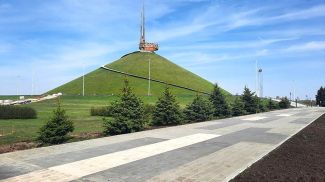MINSK, 2 March (BelTA) – Belarusian forests absorb more than 35 million tonnes of carbon dioxide annually, BelTA learned from the press service of the Forestry Ministry.
“Forests play a crucial role in regulating the temperature of the planet, being the main absorbers of carbon dioxide. About half of carbon dioxide emissions known to have a greenhouse effect are absorbed by forest ecosystems. Forests also release oxygen into the atmosphere. The total stock of plantations in Belarus exceeds 1.8 billion cubic meters. Every year this figure grows. The country's forests absorb more than 35 million tonnes of carbon dioxide every year,” the press service noted.
Forestry is one of the sectors of the economy most vulnerable to weather and climate change. Thus, the Forestry Ministry has developed and approved a number of documents. These include the national action plan to adapt the Belarusian forestry sector to the climate change by 2030, the national action plan to increase the absorption of greenhouse gases by forests for the period up to 2030, and the strategy of adapting the Belarusian forestry to the climate change until 2050. In the wake of the measures outlined in these documents, forest coverage and forest area are expected to increase to 42%, improve the natural and age structure of forests, increase the productivity of plantations," the ministry said.
Belarus is among the top ten forest states in Europe in terms of a number of key indicators that characterize the forest stock (forest coverage, forest area and stocks of growing wood per inhabitant). Forests cover over 40% of the country. According to the press service, this is the highest figure which has been registered over more than a century.
In addition to exploitable forests, there are nature conservation, recreational and protective forests. Natural forests occupy about 1.6 million hectares, or 16% of the country's forest resources. Most of them are specially protected natural areas (nature reserves, sanctuaries, national parks, and natural monuments). The share of such forests in the total forest resources is constantly increasing and currently stands at 15.9%. “To preserve natural ecosystems, biological and landscape diversity, scientific organizations have been actively working to identify and transfer typical and rare habitats of international and national conservation value to land users for protection. Thus, since 2015, more than 230 biotopes with a total area of about 27,000 hectares have been identified and transferred for protection,” the press service noted.
Forests play a special role in preserving water balance and water quality. A forest bordering water bodies performs important water-regulating and water-protective functions. Plantations significantly reduce evaporation of moisture and surface runoff, if compared to non-forested areas. The snowmelt period in the forest is also much longer than in fields. As a result, forests maintain high water levels in rivers and reservoirs and contribute to the creation of groundwater reserves. Trees located along the banks of water bodies play the role of natural filters-purifiers. Such forests account for more than 20% of the country's territory.











